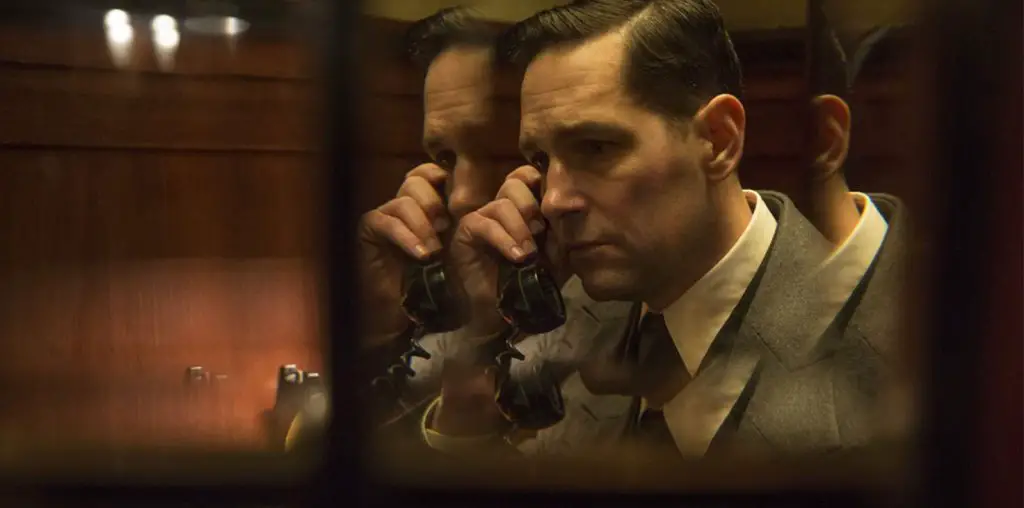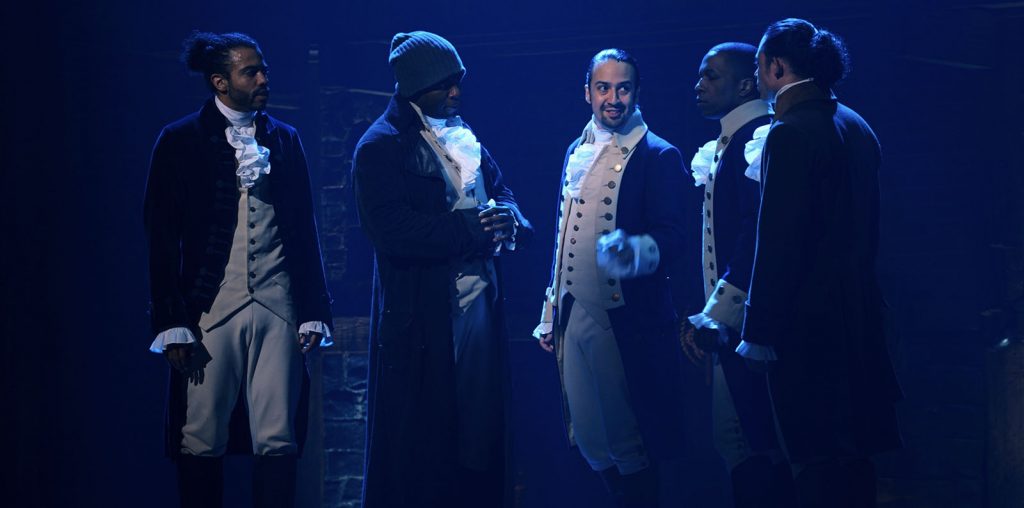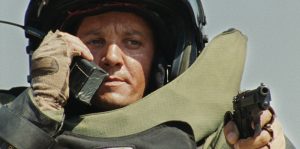
Kathryn Bigelow’s The Hurt Locker is a grinding, nightmarish machine. Oh, you wanted some three-act plot structure with your movie? Sorry, they only serve straight adrenaline and dread here. The soldiers in this film live minute to minute, hour to hour, day to day. All that matters is trying to stay alive and hold onto your sanity even as the adrenaline becomes an addiction.
The film takes place during the last thirty-six days of Bravo Company’s tour in Baghdad – a landscape of hot streets, hostile civilians, and improvised explosive devices. Bomb tech Will James (Jeremy Renner) arrives as a replacement for the previous staff sergeant, who expired in a hot splash of blood. James and team members Sanborn (Anthony Mackie) and Eldridge (Brian Geraghty) are the guys who get called in whenever somebody notices a wire sticking out of a pile of trash or a parked car sagging like there’s something heavy in the trunk. Sometimes the trash and the car explode, and sometimes they don’t.
The plot’s episodic nature seems a natural reflection of the pace and structure of the characters’ lives. It also allows for a parade of terrific character actors, including Ralph Fiennes, Guy Pearce, and David Morse, all of whom make chewy, charismatic appearances in scenes that probably took no more than thirty-six hours to film. The mostly unknown leads – Geraghty, Renner (who was also in my favorite movie of this decade, Andrew Dominik’s “The Assassination of Jesse James by the Coward Robert Ford“), and especially Mackie – more than hold their own, however. There’s a queasy tension among them that comes from mutual hatred and dependence. They seem isolated from the other troops in Bravo Company, a dysfunctional three-man family unit, vaguely defined and deeply unstable. The brutal roughhousing scene where they try to bond is as harrowing as any scene of combat.
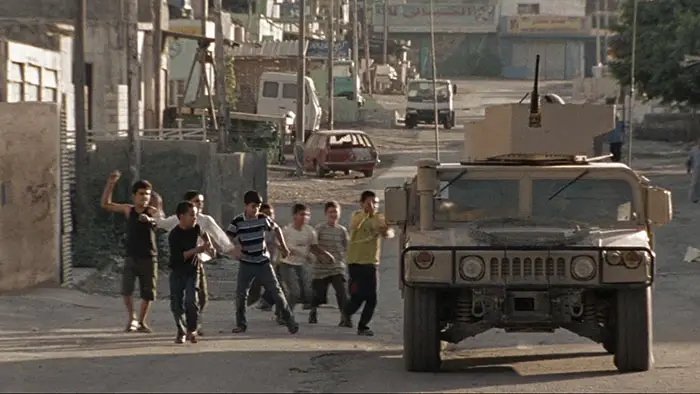
“…a dysfunctional three-man family unit, vaguely defined and deeply unstable.”
I liked the shifting relationship between James and Sanborn. It’s dangerous to hate a man when your life depends on him. It’s also dangerous to hate a man when his life depends on yours. Who knows what you might do, if you were pushed far enough? People die every day in Baghdad, Sanborn points out. Accidents happen. On the other hand, when you’ve been crouching in the desert sand for hours, eye glued to a rifle scope as you wait for a sniper to lift his head, it’s good to have a buddy around who will get you a juice box and even put the straw in your mouth.
It could be argued that The Hurt Locker‘s biggest star is the city of Baghdad. With a populace whose every movement and utterance seem ominous, the city surrounds and overwhelms. Every window might contain a sniper, every cell phone might be a detonator, and anything is potentially a bomb. You almost expect the stray cats to start exploding.
Maintaining a state of constant alertness and tension wears down the soldiers’ ability to apprehend reality. One of the most interesting threads of the film involves James’ friendship with an Iraqi boy who sells bootleg DVDs at the edge of the military base. Then a corpse shows up, rigged into a gruesome “body bomb,” and the Iraqi boy is involved. Sgt. James’ perceptions begin to betray him. In a lesser movie, he’d find out who’s responsible and deal out justice, but The Hurt Locker‘s Iraq is too murky, too complicated for that.
Bigelow has made everything from schlock (Near Dark) to engaging pop (Point Break) to dystopic sci-fi (Strange Days), and now she’s unexpectedly delivered a film of convincing psychological realism. There is a scene late in the film when a bomb detonates inside the green zone at night and the landscape is transformed into something like hell on earth, with orange flames illuminating the men’s faces as they scan the darkness for phantom insurgents who, they feel sure, are watching and laughing. It’s a scene that also seems to depict the mental landscape in which the men exist, too – a place of uncertainty, menace, and permanent, maddening heat.
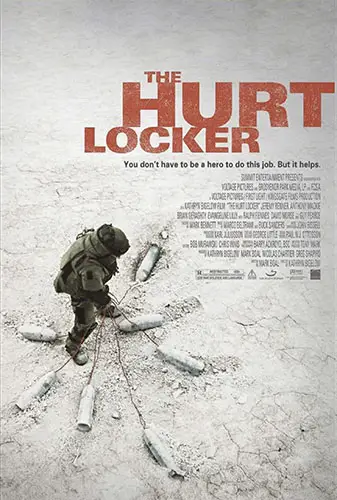
"…alertness and tension wears down the soldiers' ability to apprehend reality."
